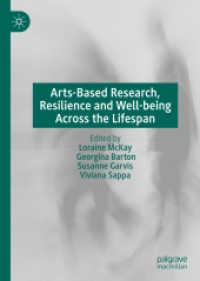- ホーム
- > 洋書
- > ドイツ書
- > Humanities, Arts & Music
- > Religion & Theology
- > christianity
Full Description
The Second Vatican Council (1962-1965) - which finished its work just thirty years ago - has rightly been described as one of the most important events in the history of the Church since the Reformation and the Age of Enlightenment. It is in particular the Pastoral Constitution Gaudium et spes On the Church in the Modern World which marks a milestone on the Church's way into modernity. It forms a bridge designed to overcome misunderstandings of the past, points of conflict and rifts between the Church and modern society. It purports to guide the differing positions towards a constructive dialog. The central criterion and the crucial question of this new definition of the relationship in all areas, such as culture, politics, science and economics is the criterion of Relative Autonomy - the topic treated in this book.
Contents
Contentsconcept of autonomy with a special emphasis on the foundation of the subject's autonomy as a central demand of the Enlightenment und shows at the same time the central problems posed for its theological reception. - Part II demonstrates the relative autonomy of earthly affairs as a theological principle of structure of the Pastoral Constitution Gaudium et spes. Central aspects are the terms aggiornamento, the signs of the times and the council's concept of dialogue. - The final part shows the importance of the principle of iusta autonomia as a significant criterion for the modern problem areas of secularism and pluralism.








